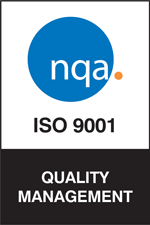Understanding the ROI and Efficacy of Bio-Based Solvents

We receive many calls from our clients asking about switching from traditional solvents to new alternative greener chemistries for cleaning parts and process containers.
As a clean technology company, PRI supports the development of these types of chemistries– commonly, these newer cleaners are terpene, citrus or lactic-based chemistries. They offer reduced worker exposure over traditional solvents that have known safety or health-related drawbacks. Some of these alternative solutions are not listed as HAPS or RCRA-listed solvents. On the surface that is pretty impressive, and one can understand why plant Environmental Health and Safety (EHS) officers are enticed to convert to one of these solvents.
Our customers want to know – can these alternative cleaners can be used in PRI parts washers, and recycled through our PRI distillation units? The short answer is “yes,” most can be used and recycled in our systems. However, some elements of the process operate differently than you might be accustomed to, and as such, the ROI is different than traditional solvents.
Acquisition Cost:

Usually bio-based solvents are more expensive than traditional chemistries, making recycling these alternatives a high importance. Prices for these products can be three to five times greater than Alcohol, Acetate, Ketone and Hydrocarbon solvents.
Recyclability/Durability:
Most, if not all of the vendors of these green products claim their solvent will distill under vacuum, and so they do to a limited degree. Vegetable-based liquids have a tendency to deteriorate under the continual heating of the recycling process. As the product breaks down, it lessens the active agents available for cleaning. To compensate for this diminished performance, it is necessary and recommended by most manufactures to “sweeten” the wash cleaning solution with fresh, new “green” solvent to keep its cleaning agents working at an acceptable level. This diminishes the value of the financial return on the recycling effort if you cannot recycle as much, and have to supplement with virgin solvent to keep the chemistry working.
Cleaning Efficacy:
In addition to the challenge mentioned above, discussions with production personnel at our customers’ sites where alternative solvents are being used have shed some light on living with these alternative chemistries. Many report that bio-based solvents do not solubilize organic resins as well as traditional solvents and may require users to clean the same parts twice. This means more labor required in addition to added use of the cleaning solution.

In a real world contrast, let’s look at a long-time PRI client using the SWS Press Parts Washing System with traditional solvents along with a SCR Solvent Recycling System. For this client, their process requires a “top off” or “sweetening” of roughly two drums of solvent each month on average to make up for drag out losses, VOC losses and sacrificial solvent loss in the distillation bottoms. Clients with the same systems using bio-based alternatives have reported the need to top off or “sweeten” the process with four to five drums a month to get their parts clean to a suitable level.
In summary, bio-based solvents offer pros and cons, respectively:
- reduced worker exposure to traditional solvents
- alternatives which are not HAPS or RCRA-listed
- lessened cleaning ability
- higher price per gallon
- significantly higher makeup volume required to maintain cleaning performance
There are a sizeable number of challenges added to the process which need to be balanced alongside the environmental pluses the alternative solvents offer. Decision makers should understand the facts and consider that their ROI is vastly different when changing to a bio-based solvent, prior to making a process modification. Changing to bio-based solvent will diminish the cost avoidance you may have become accustomed to in using tradition solvents processed in your parts washer and solvent recycling system. In other words – the recycling savings will be less. Management may still find these challenges acceptable, but it’s best to be informed on the front end.
If you would like to learn more about solvent recycling and the considerations that go into building a ROI around your process, please contact us and we would be glad to help you find solutions to meet your needs.
Categories & Tags
ISO 9001:2015
